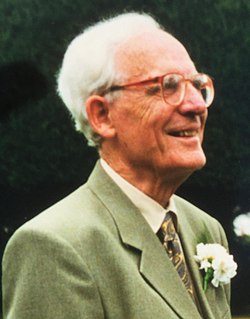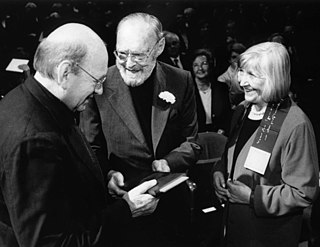A Quote by Harry Blamires
There is no longer a Christian mind ... the modern Christian has succumbed to secularization. He accepts religion - its morality, its worship, its spiritual culture; but he rejects the religious view of life, the view which sets all earthly issues within the context of the eternal, the view which relates all human problems social, political, cultural to the doctrinal foundations of the Christian Faith, the view which sees all things here below in terms of God's supremacy and earth's transitoriness, in terms of Heaven and Hell.
Quote Topics
All Things
Below
Christian
Christian Faith
Context
Cultural
Culture
Earth
Earthly
Eternal
Faith
Foundations
God
Heaven
Heaven And Hell
Hell
Human
Human Problems
Issues
Life
Longer
Mind
Modern
Morality
Political
Problems
Rejects
Relates
Religion
Religious
Sees
Sets
Social
Spiritual
Supremacy
Terms
Things
View
Which
Within
Worship
Related Quotes
The Christian view that all intercourse outside marriage is immoral was, as we see in the above passages from St. Paul, based upon the view that all sexual intercourse, even within marriage, is regrettable. A view of this sort, which goes against biological facts, can only be regarded by sane people as a morbid aberration. The fact that it is embedded in Christian ethics has made Christianity throughout its whole history a force tending towards mental disorders and unwholesome views of life.
When one gives up the Christian faith, one pulls the right to Christian morality out from under one's feet. This morality is by no means self-evident. Christianity is a system, a whole view of things thought out together. By breaking one main concept out of it, the faith in God, one breaks the whole. It stands or falls with faith in God.
But every point of view is a point of blindness: it incapacitates us for every other point of view. From a certain point of view, the room in which I write has no door. I turn around. Now I see the door, but the room has no window. I look up. From this point of view, the room has no floor. I look down; it has no ceiling. By avoiding particular points of view we are able to have an intuition of the whole. The ideal for a Christian is to become holy, a word which derives from “whole.
Why did the consensus of Christian churches not only accept these astonishing views but establish them as the only true form of Christian doctrine? . . . these religious debates - questions of the nature of God, or of Christ - simultaneously bear social and political implications that are crucial to the development of Christianity as an institutional religion. In simplest terms, ideas which bear implications contrary to that development come to be labeled as 'heresy'; ideas which implicitly support it become 'orthodox.'
Under the old social philosophy which had governed the Middle Ages, temporal, and therefore all economic, activities were referred to an eternal standard. The production of wealth, it distribution and exchange were regulated with a view to securing the Christian life of Christian men. In two points especially was this felt: First in securing the independence of the family, which can only be done by the wide distribution of property, in others words the prevention of the growth of a proletariat; secondly, in the close connection between wealth and public function.
That the religious right completely took over the word Christian is a given. At one time, phrases such as Christian charity and Christian tolerance were used to denote kindness and compassion. To perform a "Christian" act meant an act of giving, of acceptance, of toleration. Now, Christian is invariably linked to right-wing conservative political thought -- Christian nation, Christian morality, Christian values, Christian family.
Although I'm not Christian, I was raised Christian. I'm an atheist, with a slight Buddhist leaning. I've got a very strong sense of morality - it's just a different morality than the loud voices of the Christian morality.... I can't tell you how many films I've turned down because there was an absence of morality. And I don't mean that from any sort of Judeo-Christian-Muslim point of view. I'm not saying they're wrong and can't be made. But, fundamentally, I'm such a humanist that I can't bear to make films that make us feel humanity is more dark than it is light.
Paganism is that view of life which finds the highest goal of human existence in the healthy and harmonious and joyous development of existing human faculties. Very different is the Christian ideal. Paganism is optimistic with regard to unaided human nature, whereas Christianity is the religion of the broken heart.







































